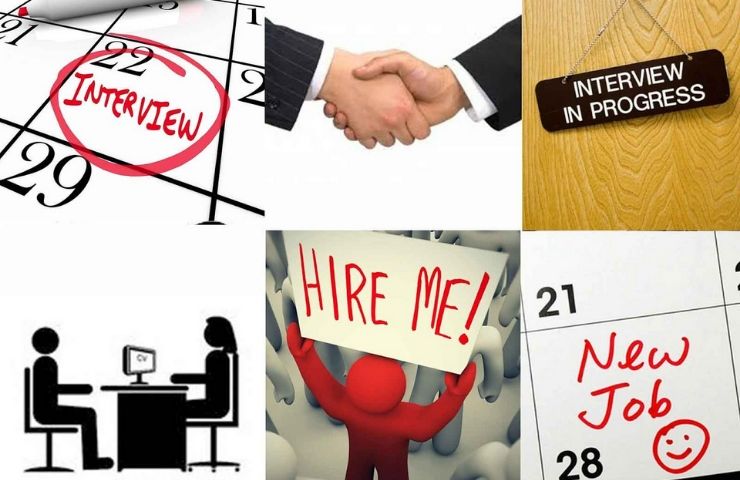
Job seeking is serious business. You have to polish your resume, craft a cover letter, and submit your application. Then you wait and hope for an interview. Nailing the interview is a great start, but many job seekers struggle with what to do (or not do) once the interview is over. While some opt to wait in silence, there are plenty of compelling reasons to write a follow-up letter to your potential employer. Here we explore that logic and outline how to follow up after an interview.
Get all the details
In order to follow up properly you have to have all the details about the people you talked to and what you talked about. It’s easy to get flustered during a job interview, so just try to take a deep breath and focus in on the specifics. When you write a follow-up letter of any kind you’ll want to address it to the proper people, so either take mental note of their names or ask for business cards on the way out. As soon as you get home from your interview, take a few minutes to jot down everything you remember about the interaction, including names and titles. Having this information handy will make the follow up much easier. Details tend to become fuzzy after a while, though, so if you’re sending a handwritten thank you note, it should be done within two business days.
Explore the tried and true
Though people rarely sit down with pen and paper anymore to compose a letter, sending a handwritten thank you note after an interview is still widely appreciated. Many applicants mistakenly assume that a handwritten note is too old fashioned in today’s technology based society. The truth is that, particularly if you’ve had a face-to-face interview, a follow up letter can really make you stand out among applicants. The message doesn’t need to be long. Just be sure to thank your interviewer and let him/her know that you are looking forward to more discussion in the future. If you were interviewed by more than one person, be sure to send a separate message to each interviewer and ensure that each is worded differently.
Avoid further questions
When you send your follow-up message it’s best to stick with a quick thank you and steer clear of asking additional questions. Keep in mind that the employer is likely busy with the interview or employee selection process. You don’t want to add to the to-do list by asking more questions and you also don’t want it to look like you were unprepared at your interview. When you look up interview tips you’ll often find one of the main points is to prepare your questions ahead of the interview. By asking more questions in your follow-up it can imply that you weren’t really ready at your interview.
Keep on top of things
If an interviewer mentioned that she’d let the successful candidate know by a certain date and you haven’t heard anything by that time, it’s acceptable to email or call. As long as you keep your message concise and understanding, you’ll likely maintain a professional image and may even reinforce your interest in the position. Express your gratitude for his or her time and let him or her know you’re just checking in to find out where they are in the selection process. Just be sure to keep any annoyance over wait time to yourself.
Turn a negative into a positive
Not getting the position you’ve been hoping for is a disappointment, but you can still use the experience to gain valuable knowledge. Sending a follow-up letter after a job rejection is a great way to get insight about skills you can brush up on. Again, you’ll want to keep the note to a minimum. Simply let the interviewers know that you appreciate being contacted with the outcome and politely inquire as to whether you can get some feedback and interview tips for next time. If they agree, you’ll gain information that you can put to use at your next interview. In addition, you’ll be letting these employers know how committed you are to betterment. They may be so impressed that they consider you for future opportunities.
Knowing how to follow up after an interview is an essential skill for any job seeker, but you have to be careful not to go overboard. Understand the appropriate steps to take and you’ll be well on your way to securing a job.





